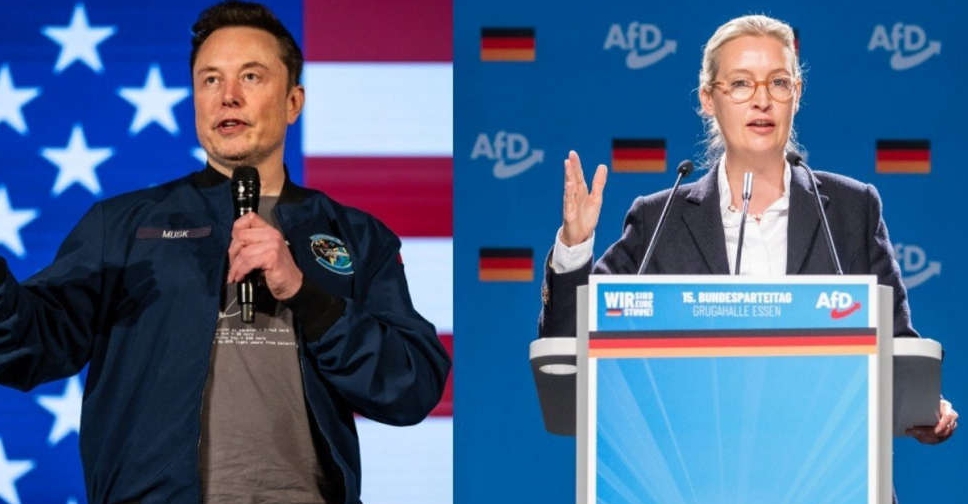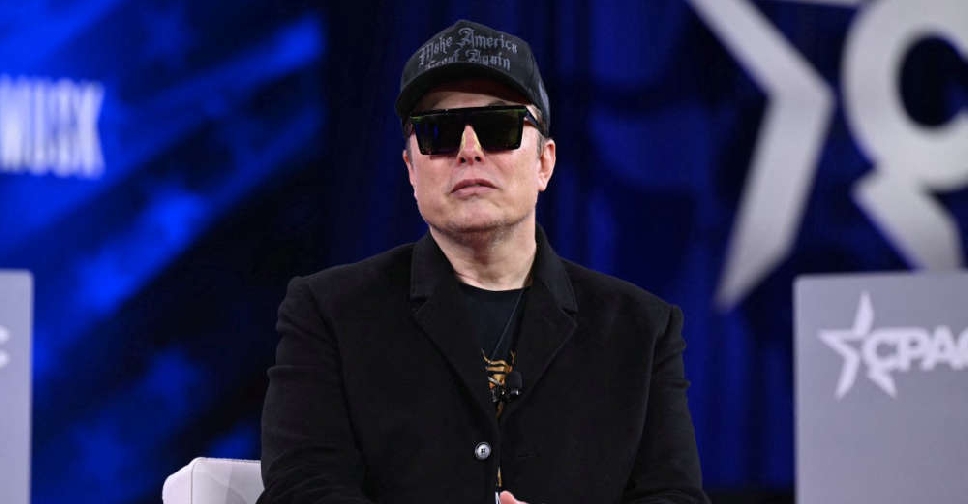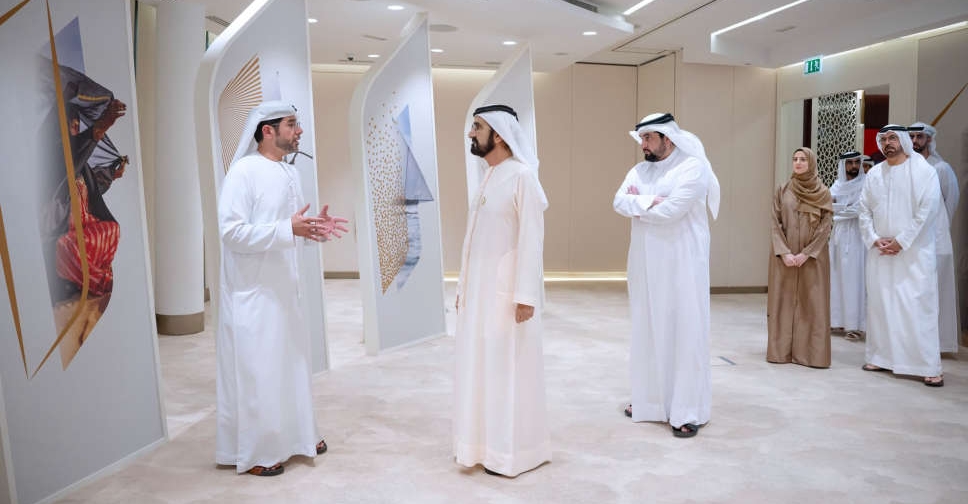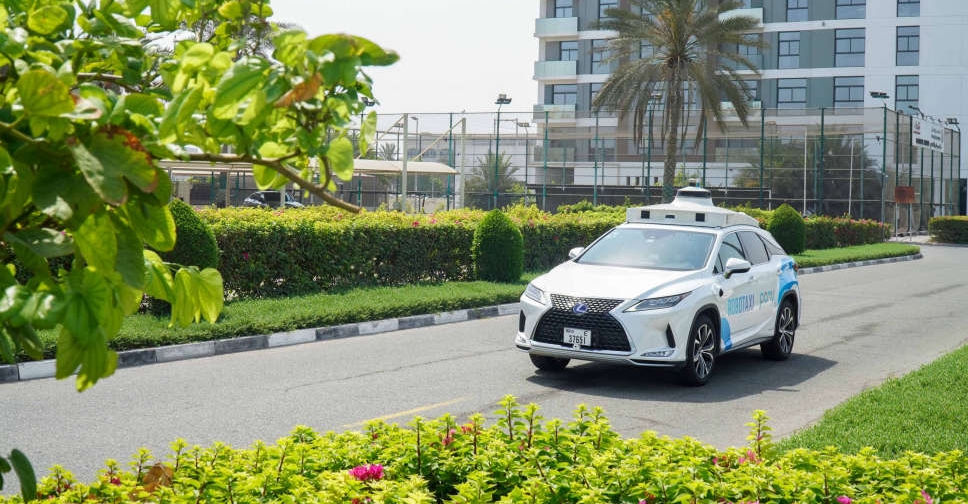
Elon Musk urged Germans to vote for the far-right Alternative for Germany (AfD) in an upcoming election in a conversation with its leader on his social media platform X that highlighted the US billionaire's growing ambition to sway European politics.
In a wide-ranging, sometimes stilted conversation that touched on immigration, German bureaucracy, energy policy, space colonisation, God and Adolf Hitler, Musk and AfD chancellor candidate Alice Weidel agreed that the AfD was the answer to Germany's malaise.
"People really need to get behind AfD, otherwise things are going to get very, very much worse in Germany," Musk said. "I think Alice Weidel is a very reasonable person. Nothing outrageous is being proposed."
Musk was doubling down on his endorsement last month of the anti-immigration, anti-Islamic party labeled as right-wing-extremist by German security services, which has caused consternation in Berlin and accusations of undue influence.
The AfD has almost no chance of forming a government despite polling in second place as other parties refuse to work with it. Still, critics worry that Musk's support for the AfD could further bolster its popularity, eroding support for mainstream parties and making it harder for them to form a coherent coalition.
Musk's endorsement of the AfD and increasingly vocal support for far-right and anti-establishment parties across Europe comes after he last year used X and his vast wealth to help Republican candidate Donald Trump win the November 5 US presidential election.
Speaking in fluent English, Weidel expressed gratitude for Musk's support, saying that the opportunity to speak with Musk was the first time in 10 years that she had been allowed a platform to say her piece without interruption from a media world that, she said, was biased against her.
While the two touched on policy, agreeing that Germany's decision to exit nuclear power was "crazy" and that immigration was out of control, they were more animated when discussing abstract matters.
Asked by Musk to dispel any concerns that her party might be similar to Hitler's Nazis, Weidel said the genocidal dictator "was a communist" whereas hers was a "conservative libertarian" party.
"The biggest success (of other parties) after that terrible era in our history was to label Adolf Hitler as right and conservative. He was exactly the opposite. He wasn't a conservative, he wasn't a libertarian. He was a communist socialist guy," she said.
Almost all historians agree that Hitler, an eliminationist nationalist, was of the far-right.
Musk has defended his right to weigh in on German politics because of his "significant investments," namely Tesla's first European plant, and has praised the AfD's approach to regulation, taxes and market deregulation.
Musk recalled the bureaucratic hurdles that confronted him in opening the German Tesla plant.
"I think it was 25,000 pages was our permit. And it had to be all printed on paper," Musk said. "And then there has to be many, many copies made. So it literally was a truck of paper."
Last August, Musk held a similar talk with Trump, who has since tasked the entrepreneur with leading a drive to make US government more efficient.
Weidel led the second half of the conversation, inviting Musk to explain his vision for peace in Ukraine, the colonisation of Mars and the concept of God. On the latter two points, Musk was forthcoming, but he declined to be drawn on Ukraine, saying a settlement was a matter for Trump.
On energy, Musk backed Germany's renewable ambitions but agreed with Weidel that turning off the nuclear power plants was a bad idea.
"When I saw that Germany was turning off the power plants after being cut off from gas supplies from Russia, I thought ... this is one of the craziest things I've ever seen," he said.
Leaders across Europe have expressed alarm over Musk's political activities in recent days, with some urging the EU to use its laws more robustly to guard the continent's democracies from outside influence.
The European Commission has said it will look at the discussion as part of its ongoing probe into X and possible violations of its Digital Services Act for potentially giving preferential treatment to "certain types of content."

 Israel sends delegation to Qatar for Gaza talks ahead of Netanyahu trip to US
Israel sends delegation to Qatar for Gaza talks ahead of Netanyahu trip to US
 Death toll from Texas floods reaches at least 50; dozens still missing
Death toll from Texas floods reaches at least 50; dozens still missing
 Musk announces forming of 'America Party' in further break from Trump
Musk announces forming of 'America Party' in further break from Trump
 Leaders of growing BRICS group gather for Rio summit
Leaders of growing BRICS group gather for Rio summit
 At least 24 dead in Texas flash flooding
At least 24 dead in Texas flash flooding




